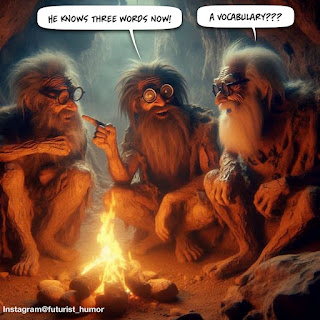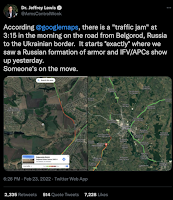I have the good fortune to meet with and interview many distinguished business and technology leaders in the normal course of my work. One of the most common subjects of discussion is the increasing importance of data and data analytics. Everyone needs data and an understanding of what it means to operate today. Data is captured and analyzed to determine facts, and the facts are weighed and measured to derive the truth. Without data, facts can’t be supported, truth can’t be determined and effective reasoning cannot be applied.
Leonardo Da Vinci was one of the first to see clearly that knowledge of science would have to come from repeated experiments done, not unproven ideas. He was also the first scientist that correlated mathematics and science.
Most people recognize the role of truth in reasoning. Reasoning without truth is like programming without logic. It doesn’t work. Computers run on logic as does nearly the entire world as a result of digital transformation. Truth and logic allow others to replicate your processes by following the logic, testing it, and debugging any issues. That is why it is so critical, in an advanced digital society, to respect and honor the value and utility of truth and logic. Without truth scientific breakthroughs and processes can’t be delivered, digital systems and economies can’t operate, and governments cannot sustain the trust and cooperation of their citizens.
If a person rejects data, denigrates facts and devalues truths, then their ability to use logic and reasoning to make good decisions is severely limited as is their ability to lead. In the absence of reasoning, superstitions, bias, false narratives and prejudices find room to grow.
Galileo was one of the first modern thinkers to clearly state that the laws of nature are mathematical.
When I ask business leaders to identify emerging technologies they feel will have the biggest impact on their business in the near future they most often list technologies like artificial intelligence, machine learning, IoT, automation, robotics, personalization, etc. All of these emerging technologies and their potential value to society are fully dependent on data, data analytics, determining facts and the revealed truth, and then using truth within logic systems to build cool things like autonomous self-driving cars!
Given the absolute centrality of data, facts, truth and logic to our current and future quality of life and common good, it would seem we could all agree on their value and utility, but alas we seem to be experiencing a crisis in truth and reasoning. Truth today, rather than being the highly valued output of a reasoned and logical process is increasingly being supplanted by unsupported opinions, superstitions, bias and emotions - that require no data, facts or revealed truth to support them.
People will generally accept facts as truth only if the facts agree with what they already believe. ~ Andy Rooney
Rather than finding ways to utilize truth for the common good or at least to gain an economic advantage, some seem committed to destroying the utility of truth. We see this demonstrated in the politicalization of news, data, facts, science, research, healthcare, education, etc. It seems many forget that the quality of life before science, scientific processes and good engineering, wasn’t so great and often very short.
In this time of global pandemic, it is of the utmost importance that we all lean on data, scientific processes, analytics and truth derived from reason. Covid-19 will ultimately be overcome with virology, epidemiology, physics and behavior. To reject science, scientific thinking, accumulated knowledge and experience in favor of superstitions and gut feelings today is to reject the very foundations of our civilization.
Don't prejudice my opinions with your facts.
When significant portions of our population harbor a distrust for truth, and the trusted and reasoned processes for determining it - we are in serious crisis. Our ability to compete globally is largely determined by our ability to innovate based on sound science and engineering principals. Truth, and the benefits realized by having a proven and logical system to derive it, are essential to our society's common good and future.
************************************************************************
Kevin Benedict
Partner | Futurist | Leadership Strategies at TCS
***Full Disclosure: These are my personal opinions. No company is silly enough to claim them. I work with and have worked with many of the companies mentioned in my articles.










